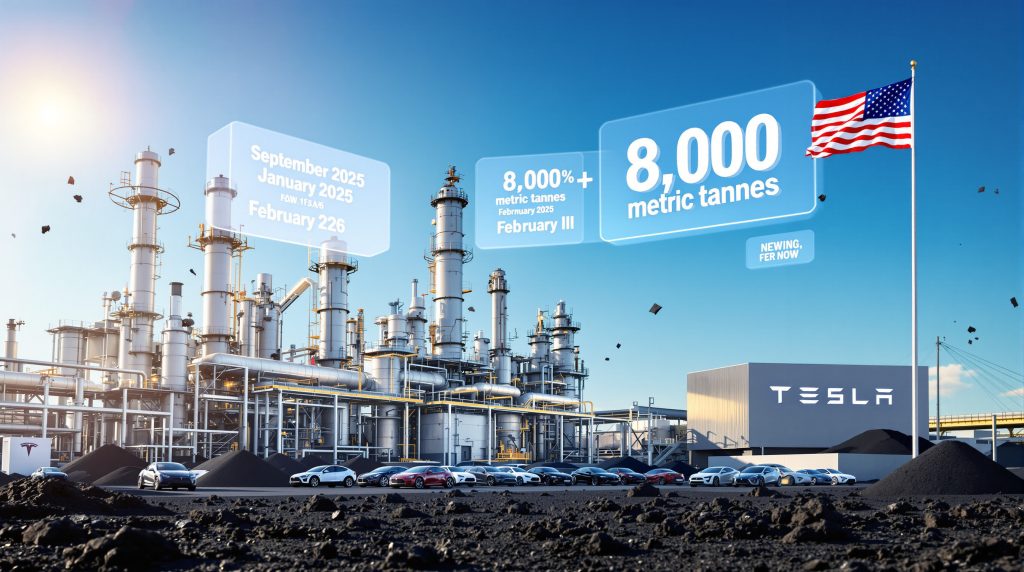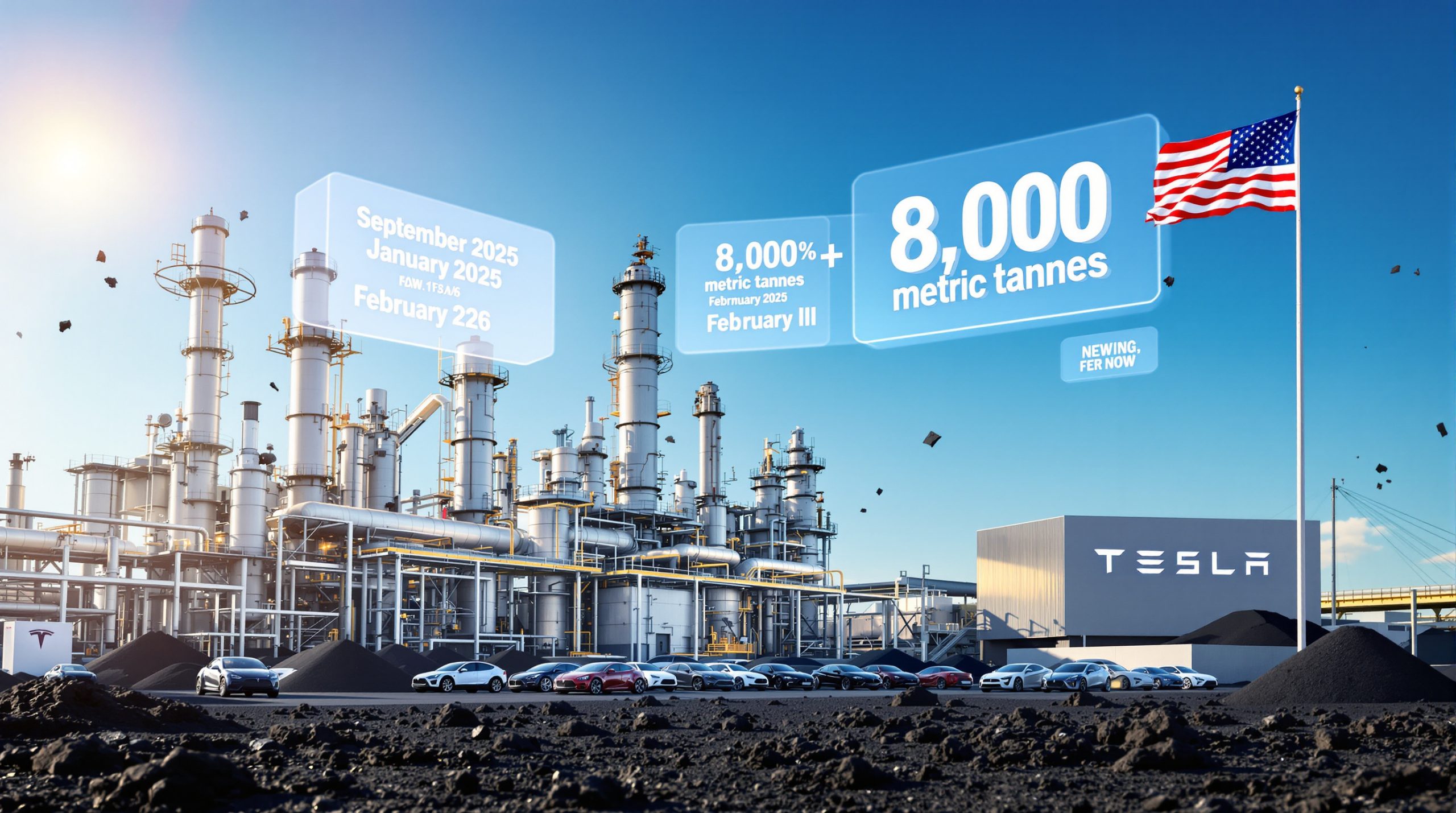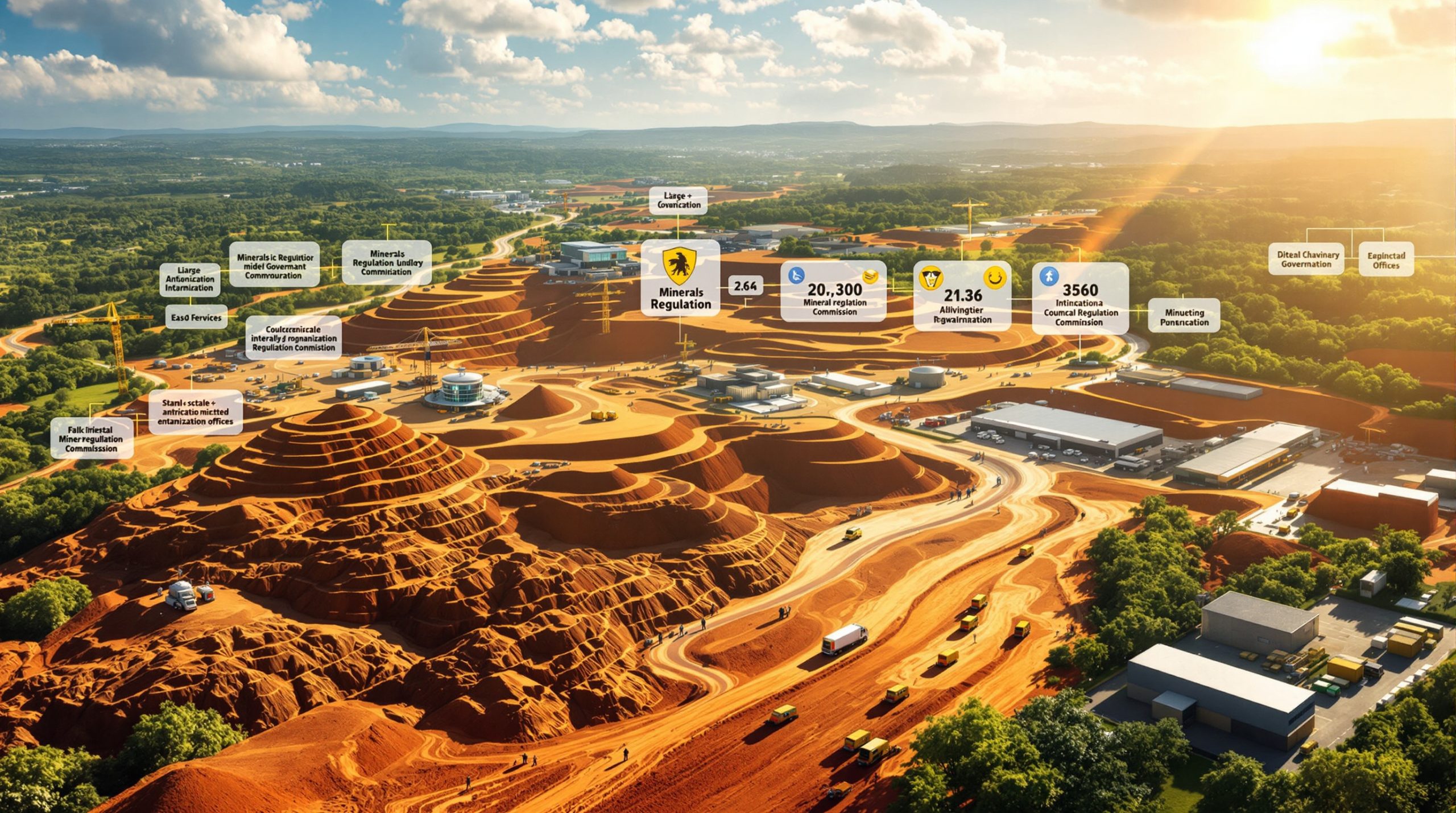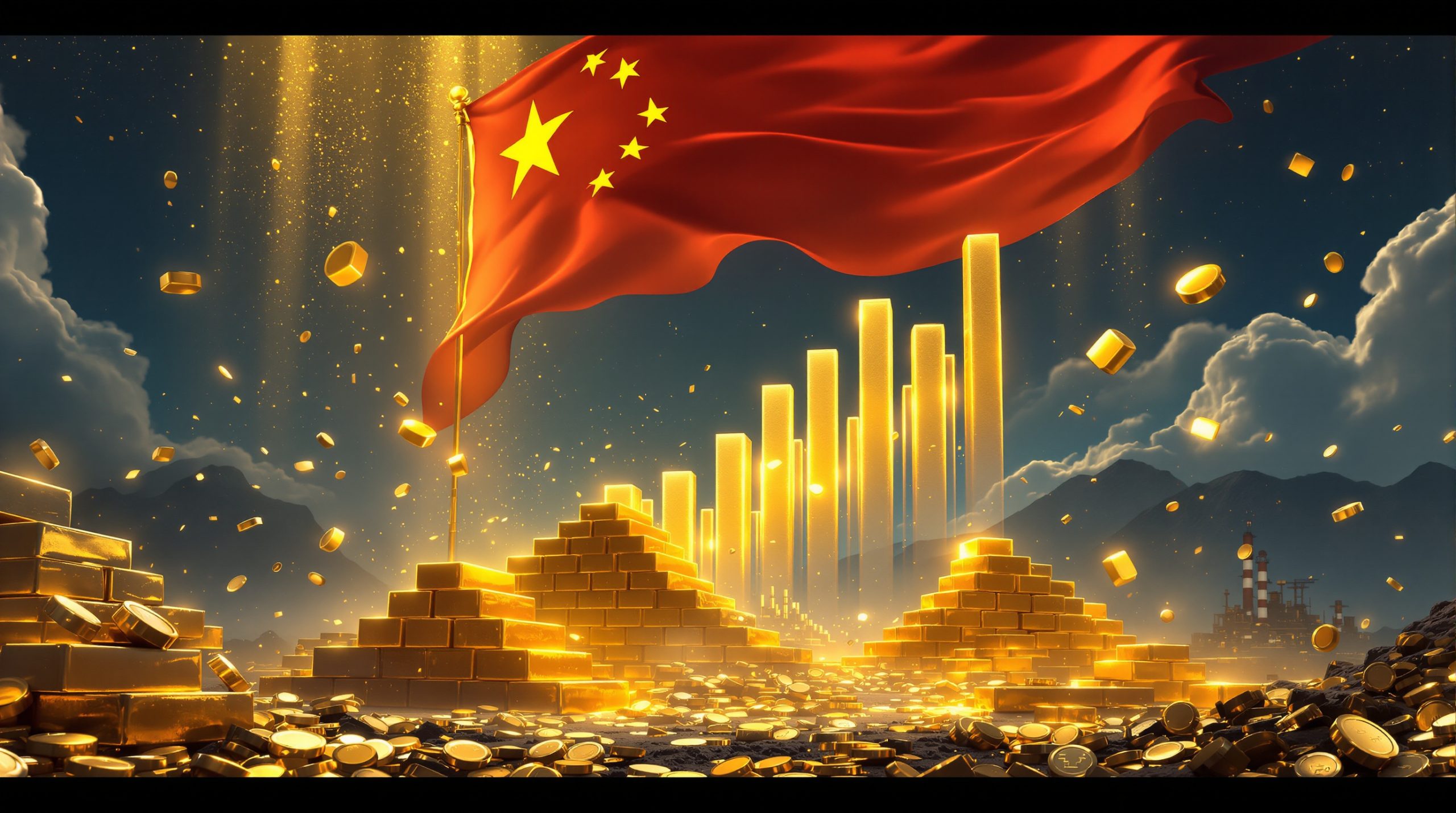The Syrah Tesla graphite supply agreement extension has become a pivotal moment in the global race for battery supply chain independence. This strategic partnership between Australia's Syrah Resources and the electric vehicle giant represents more than a simple contract modification—it's a critical test of whether Western companies can successfully challenge Chinese dominance in battery material processing. Furthermore, the outcome will likely influence investment decisions across the critical minerals & energy security sector for years to come.
Background of the Strategic Partnership
The collaboration between Syrah Resources and Tesla forms a cornerstone of North America's drive toward battery supply chain independence. This partnership focuses on Syrah's Louisiana-based Vidalia facility, which holds the unique distinction of being the Western Hemisphere's only large-scale, vertically integrated graphite anode material production plant operating outside Chinese control.
Unlike Chinese facilities that benefit from extensive integrated supply ecosystems and lower operational costs, Syrah's facility offers strategic advantages including proximity to North American battery manufacturers, compliance with Western environmental and labour standards, and reduced shipping costs for regional customers. The facility represents a critical test case for establishing competitive graphite processing operations outside China's dominant market position.
Current Extension Timeline and Key Dates
The timeline of extensions reveals the complexity of meeting Tesla's stringent qualification requirements. The original September 16, 2025 deadline has undergone two extensions within a two-month period, demonstrating both companies' commitment to resolving technical challenges rather than terminating the strategically important relationship.
| Milestone | Original Date | Current Extended Date | Significance |
|---|---|---|---|
| Initial Cure Deadline | September 16, 2025 | January 16, 2026 | Final opportunity to address compliance issues |
| First Extension Period | N/A | November 15, 2025 | Initial extension attempt |
| Final Qualification | N/A | February 9, 2026 | Last chance for material certification |
| Contract Volume | 4-year period | 8,000 metric tonnes | Total graphite anode material commitment |
The extension structure involves two distinct phases: a cure period ending January 16, 2026, during which Syrah must address alleged compliance deficiencies, and a final qualification phase with a hard deadline of February 9, 2026. Tesla retains contractual termination rights if final qualification is not achieved by the February deadline.
Why Did Tesla Issue a Default Notice Against Syrah?
Tesla's default notification in July 2025 stemmed from technical non-conformity issues rather than contractual breaches related to payment or timeline violations. The automaker determined that Syrah's Louisiana facility failed to deliver active anode material samples that met Tesla's rigorous battery specifications.
This technical hurdle extends beyond simple quality control challenges, highlighting the complex engineering requirements necessary for electric vehicle battery components. The qualification process demands that Syrah's Louisiana-produced graphite demonstrate:
• Consistent electrochemical performance metrics across production batches
• Thermal stability characteristics under battery operating conditions
• Particle size distribution specifications within Tesla's precise tolerances
• Material purity levels that ensure long-term battery reliability and safety
Notably, Syrah disputes being in default under the agreement while simultaneously working with Tesla to extend compliance deadlines. This approach suggests both companies recognise the mutual strategic value of maintaining the partnership despite current technical challenges.
Industry Insight: Active anode material qualification in automotive battery manufacturing typically involves months of testing across multiple performance parameters, making rapid qualification extremely challenging for new suppliers entering established supply chains.
How Does This Extension Impact Tesla's Battery Supply Chain Strategy?
Tesla's partnership with Syrah aligns with broader Western efforts to diversify critical mineral supply chains away from Chinese dominance. Currently, China controls approximately 60% of global graphite processing capacity, making alternative sources like Syrah's Vidalia plant strategically valuable for supply chain resilience.
The 8,000 metric tonnes annual commitment represents a significant portion of Tesla's North American battery production requirements. Successfully qualifying this supply source would provide Tesla with several strategic advantages:
• Enhanced supply chain resilience against geopolitical disruptions
• Reduced dependency on Chinese critical mineral suppliers
• Potential cost advantages through domestic sourcing and shorter logistics chains
• Alignment with U.S. government incentives for domestic critical mineral processing
The arrangement also supports Tesla's broader strategy of vertical integration and supply chain control, particularly crucial as the company scales Model 3 and Model Y production at its North American facilities. However, the technical challenges highlight the difficulties Western companies face in establishing competitive alternatives to established Chinese supply chains, especially considering the US-China trade war impacts on global markets.
What Are the Financial Stakes for Syrah Resources?
The financial implications for Syrah Resources extend far beyond the immediate Tesla contract. The company recently secured $8.5 million from its $150 million United States International Development Finance Corporation loan facility, demonstrating continued government backing for the integrated supply chain strategy.
Financial Impact Analysis:
| Metric | Amount | Significance |
|---|---|---|
| Recent Capital Injection | $8.5 million | Immediate operational support |
| Total USIDF Loan Facility | $150 million | Long-term project financing |
| Estimated Annual Contract Value | $40-60 million | Based on current market pricing |
| Four-Year Total Revenue Potential | $160-240 million | Full contract value realisation |
The USIDF funding supports both the Louisiana operations and Syrah's Balama graphite mining operations in Mozambique, which experienced significant disruptions during 2024 due to civil unrest. This integrated financing structure underscores the strategic importance U.S. development finance institutions place on establishing Western-controlled critical mineral supply chains.
Stock Market Implications
The extension provides Syrah with breathing room to address technical challenges while maintaining investor confidence in the Tesla partnership's viability. Australian investors closely monitor how this Syrah Tesla graphite supply agreement extension affects the company's market position. Failure to meet the February 2026 deadline could result in significant stock price volatility and force strategic repositioning of the company's North American operations.
The Tesla contract represents more than revenue potential; it provides validation for Syrah's technology and manufacturing capabilities, potentially opening doors to additional North American battery manufacturers seeking supply chain diversification.
How Does Syrah's Vidalia Facility Compare Globally?
Syrah's Louisiana plant occupies a unique position in the global graphite processing landscape as the only large-scale, vertically integrated anode material facility operating outside Chinese control in the Western Hemisphere.
Facility Specifications and Capabilities:
• Processing Capacity: Designed for 18,000 tonnes annual production at full capacity
• Integration Level: Complete processing from natural graphite to battery-ready anode material
• Quality Systems: Automotive-grade quality control and certification capabilities
• Current Utilisation: Approximately 44% of design capacity based on Tesla commitment
This positioning creates both significant competitive advantages and operational challenges. Unlike Chinese facilities that benefit from integrated supply chains and economies of scale, Syrah's facility offers proximity to North American markets and compliance with Western regulatory standards.
Competitive Landscape Analysis
The facility's success or failure will likely influence future investment decisions in critical mineral processing facilities outside China. Success could validate the viability of establishing competitive graphite processing operations in North America, particularly as EVs transforming mining operations globally demand secure supply chains.
Chinese competitors typically benefit from established supplier networks, lower labour costs, and integrated supply chain ecosystems that provide significant cost advantages. Syrah must overcome these structural disadvantages through technological innovation, supply chain efficiency, and strategic customer relationships like the Tesla partnership.
What Are the Broader Industry Implications?
The Syrah Tesla graphite supply agreement extension represents far more than a simple contract modification. It embodies the challenges and opportunities facing Western efforts to establish independent battery material supply chains in an industry dominated by Chinese suppliers.
Critical Minerals Strategy Impact
The partnership serves as a real-world test of whether Western companies can successfully challenge Chinese dominance in battery material processing. The technical requirements, capital investments, and qualification timelines demonstrate the complexity of establishing alternative supply sources, especially as Australia's critical minerals reserve becomes increasingly important for global supply security.
Electric Vehicle Supply Chain Security
Success would encourage additional investment in non-Chinese graphite processing facilities, potentially creating a template for other Western companies seeking to establish independent critical mineral supply chains. Government development finance institutions and private investors are closely watching the outcome.
The extension reflects broader industry challenges including:
• Technical complexity of achieving automotive-grade material specifications
• Capital intensity required for establishing competitive processing facilities
• Time requirements for qualification processes in established supply chains
• Economic viability questions for Western-based critical mineral processing
What Happens If Syrah Meets the February 2026 Deadline?
Successful qualification by February 9, 2026 would enable Syrah to transition from pre-commercial testing to commercial production shipments under the 2021 agreement. This milestone would validate multiple strategic assumptions about Western battery material supply chain development.
Commercial Production Pathway
Meeting the deadline would trigger several positive outcomes for both companies:
• Immediate production ramp-up to contracted 8,000 tonne annual volumes
• Validation of facility capabilities for automotive-grade anode material production
• Potential contract expansion beyond initial volume commitments
• Market credibility for Syrah with other North American battery manufacturers
Industry Precedent Setting
Success could establish a template for other Western companies seeking to challenge Chinese dominance in battery material processing. The validation would likely attract additional government support and private investment for similar projects across North America and Europe.
The achievement would demonstrate that Western facilities can compete technically with Chinese suppliers, potentially reshaping investment flows in critical mineral processing infrastructure globally. Furthermore, the success could complement recent developments such as the Chinese battery recycling breakthrough by creating a more balanced global supply ecosystem.
What Are the Risks If the Deadline Is Missed?
Tesla retains contractual termination rights if final qualification is not achieved by February 9, 2026. This scenario would force Syrah to reassess the Vidalia facility's commercial viability and seek alternative market strategies.
Contract Termination Consequences
Failure to meet the deadline would result in several immediate challenges:
• Loss of anchor customer representing significant revenue potential
• Facility underutilisation with only 44% capacity currently committed
• Potential covenant violations on the $150 million USIDF loan facility
• Market credibility damage affecting relationships with other potential customers
Strategic Alternatives
Even with Tesla termination, Syrah could pursue alternative strategies including:
• Secondary battery manufacturers with potentially less stringent specifications
• Industrial applications for graphite anode materials
• Export markets leveraging the facility's strategic location
• Facility restructuring to reduce fixed costs and improve economic viability
However, these alternatives would likely operate at lower pricing and volume levels than the Tesla contract originally offered, potentially undermining the facility's long-term economic sustainability.
Market Psychology and Investment Implications
The Syrah Tesla graphite supply agreement extension reflects broader market psychology around critical mineral supply chain independence. Investors and policymakers are grappling with the trade-offs between supply chain security and economic efficiency in battery material sourcing.
Investment Strategy Considerations
The partnership outcome will likely influence investment flows in several areas:
• Western critical mineral processing facilities seeking to establish Chinese alternatives
• Government development finance for strategic supply chain initiatives
• Private equity interest in critical mineral supply chain companies
• Automotive manufacturer supply chain diversification strategies
Market participants are viewing this as a bellwether for whether Western economies can successfully establish competitive alternatives to Chinese critical mineral suppliers without significant cost premiums or performance trade-offs.
Geological and Technical Factors
The technical challenges facing Syrah highlight the complexity of graphite anode material production for automotive applications. Unlike consumer electronics batteries, automotive batteries require extremely consistent performance characteristics across temperature ranges, charging cycles, and operational conditions.
Material Quality Requirements
Automotive-grade anode materials must demonstrate:
• Particle morphology consistency affecting battery packing density
• Surface area optimisation for electrochemical performance
• Impurity control at parts-per-million levels
• Thermal expansion characteristics matching battery cell design parameters
These requirements explain why qualification processes typically require months of testing and why established suppliers like those in China maintain competitive advantages through years of production experience and process optimisation.
Conclusion: A Critical Test for Supply Chain Independence
The extended deadline between Syrah and Tesla represents more than a contract modification; it embodies the fundamental challenges facing Western efforts to establish independent battery material supply chains. The outcome will likely influence investment decisions, government policies, and strategic planning across the critical minerals sector for years to come.
Success would validate the viability of establishing competitive graphite processing operations outside China, potentially triggering increased investment in Western critical mineral processing infrastructure. It would demonstrate that technical excellence, strategic partnerships, and government support can overcome Chinese cost advantages and established supply chain networks.
Failure, however, might reinforce the narrative that Chinese suppliers maintain insurmountable advantages in critical mineral processing, potentially discouraging future Western investment in alternative supply chains and strengthening Chinese market position.
The February 9, 2026 deadline thus represents a crucial inflection point not just for Syrah and Tesla, but for the broader Western strategy of reducing dependence on Chinese critical mineral suppliers in the rapidly expanding electric vehicle market.
Disclaimer: This analysis contains forward-looking statements and market projections that involve inherent risks and uncertainties. Actual outcomes may differ materially from those discussed. Revenue estimates and market projections should be considered speculative and subject to various economic, technical, and competitive factors beyond current analysis.
Ready to Invest in Critical Minerals and Battery Supply Chain Opportunities?
Discovery Alert's proprietary Discovery IQ model delivers real-time alerts on significant critical minerals discoveries across the ASX, turning complex geological announcements into actionable investment insights for the expanding battery materials sector. Explore how major mineral discoveries can generate substantial returns by visiting Discovery Alert's dedicated discoveries page and begin your 30-day free trial today to position yourself ahead of the market in this rapidly evolving sector.




